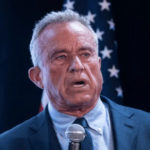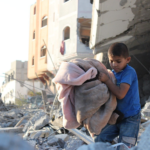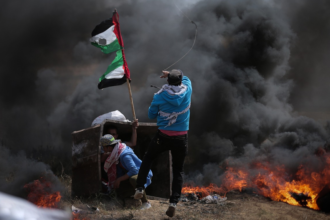Fears of Regional War Grow as Hostilities Escalate Along the Israel-Lebanon Border
Targeting Hezbollah locations to stop a major missile and drone attack, Israel has conducted a notable round of pre-emptive airstrikes in southern Lebanon. On Sunday morning, the Israel Defense Forces (IDF) declared that its planes had destroyed hundreds of Hezbollah’s missile launchers, therefore marking what has been said as Israel’s biggest military operation against the group since the full-scale war in 2006.
- Fears of Regional War Grow as Hostilities Escalate Along the Israel-Lebanon Border
- Hezbollah's Retaliation and Casualties
- Civilian and Military Toll on Both Sides
- Prime Minister Netanyahu's Warning to Hezbollah and Iran
- Hezbollah's Escalation and Nasrallah's Threats
- Diplomatic Efforts to Prevent Regional War
- US Cautions Against Escalation
- No Breakthrough in Gaza Peace Talks
What Happened During the Israeli Drone Strike in Gaza?
According to an IDF spokesman, about 100 fighter planes were engaged, which covered more than 40 sites in southern Lebanon. IDF said that the strikes were part of an attempt to stop an upcoming aerial attack by Hezbollah, supported by Iran.
The spokesman claimed, “This was a crucial operation to prevent Hezbollah from carrying out a significant aerial attack against Israel.”
Hezbollah's Retaliation and Casualties
Despite significant damage to its launch locations, Hezbollah and associates claimed in reaction to the Israeli attacks that they had fired 320 rockets and drones at Israeli military objectives. The organization said that the onslaught was a reprisal for the murder of senior military officer Fuad Shukr in Beirut on July 30. Declaring their operation to have been “completed and accomplished,” Hezbollah rejected Israel’s assertions of preventing a more major strike as “empty rhetoric.”
The Israel Defense Forces did, however, claim to have effectively intercepted every drone Hezbollah launched. One Israeli Navy soldier died in northern Israel during the fighting despite these measures. According to Israeli media accounts, the soldier was killed in an incident involving an Iron Dome interceptor and a Hezbollah drone close to a Dvora patrol boat, some 4 kilometres from the Lebanese border.
Civilian and Military Toll on Both Sides
Both sides have suffered notable losses from the continuous fighting. According to Lebanon’s health ministry, the great majority of the more than 560 deaths recorded since hostilities started in October are of Hezbollah militants. Authorities in Israel verified the deaths of twenty-six civilians and twenty-three troops in the meantime.
The United Nations claims that the fighting has also displaced about 200,000 civilians along the Israel-Lebanon border. One Zibqeen village resident said of the Israeli strikes: “It felt like the apocalypse.”
Three of Hezbollah’s fighters were killed in Sunday’s Israeli attacks, the group reported. Furthermore, two people were murdered in the town of Tiri, and one person was killed in a drone attack on a vehicle in Khiam, according to Lebanon’s Ministry of Public Health. Two of the dead were recognized by Hezbollah as fighters from the adjacent town of Haris.
Prime Minister Netanyahu's Warning to Hezbollah and Iran
Israeli Prime Minister Benjamin Netanyahu delivered a severe warning to Iran’s Supreme Leader, Ayatollah Ali Khamenei, and Hezbollah Leader Sheikh Hassan Nasrallah following the pre-emptive attacks.
“Nasrallah in Beirut and Khamenei in Tehran need to know that this is an additional step in changing the situation in the north,” Netanyahu said during a cabinet meeting. He underlined that Israel had targeted all of the drones Hezbollah had flown strategically toward central Israel.
Netanyahu underlined that Israel is not pursuing an all-out war even with the growing bloodshed. Foreign Minister Israel Katz said, “We do not seek a full-scale war; but, we will do whatever it takes to protect our citizens.”
Hezbollah's Escalation and Nasrallah's Threats
Leader of Hezbollah Hassan Nasrallah said in a Sunday night televised speech that his organization has effectively attacked a military intelligence base well into Israeli territory. According to him, Hezbollah drones had flown into Israeli territory and within 1.5 kilometres of Tel Aviv. Nasrallah cautioned that should the outcome of the latest strikes prove inadequate, Hezbollah will respond again.
“We will respond once more, should it be needed,” Nasrallah added. Once we decide it is finished, this will be over.
Diplomatic Efforts to Prevent Regional War
Diplomatic initiatives are underway in the growing conflict to stop the scenario from becoming a regional war. Said to be undertaking “a series of contacts with Lebanon’s friends to stop the escalation,” Lebanese Prime Minister Najib Mikati said that his government had little control over Hezbollah. He encouraged the UN Security Council decision ending the 2006 conflict to be followed and demanded a stop to what he defined as “Israeli aggression.”
Mikati also mentioned Lebanon’s backing of worldwide initiatives aiming at a truce in Gaza and negotiations for a hostage release agreement between Israel and Hamas.
US Cautions Against Escalation
With White House National Security Adviser Jake Sullivan expressing optimism that the most recent violence would not cause a regional conflict, the United States keenly observes the circumstances. De-escalating tensions along the Israel-Lebanon border depends on a deal between Israel and Hamas, according to the US, since Hezbollah has said it would keep fighting until the conflict in Gaza ends.
Declaring, “We are working tirelessly to prevent this conflict from spreading and to avoid a full-scale war that could have devastating consequences for the entire region,” Sullivan underlined the need for diplomacy.
No Breakthrough in Gaza Peace Talks
Peace negotiations to resolve the Gaza crisis have not yet produced notable achievements. Notwithstanding US-backed initiatives, Hamas has denounced new Israeli criteria and charged Israel with violating past pledges.
An unidentified Hamas official said, “We cannot tolerate conditions that compromise our people’s rights. Israel’s demands have evolved since the last round of negotiations in early July.
Israel, however, disputes that it has changed its position; a top Israeli official claims, “Our demands have been constant. One person generating roadblocks to peace is Hamas.”
Fears of a larger battle involving other regional parties remain rising as the situation shows no signs of abating. Watching attentively, the world community hopes diplomatic initiatives will succeed before the situation spirals out of hand. The possibility of a wider regional confrontation remains big, pulling in surrounding nations and straining peace attempts as Hezbollah and Israel pledge to keep on their activities should be required. The humanitarian toll keeps rising among the uncertainties as displaced people on both sides go through the challenges of a scenario growing more erratic and unstable.








